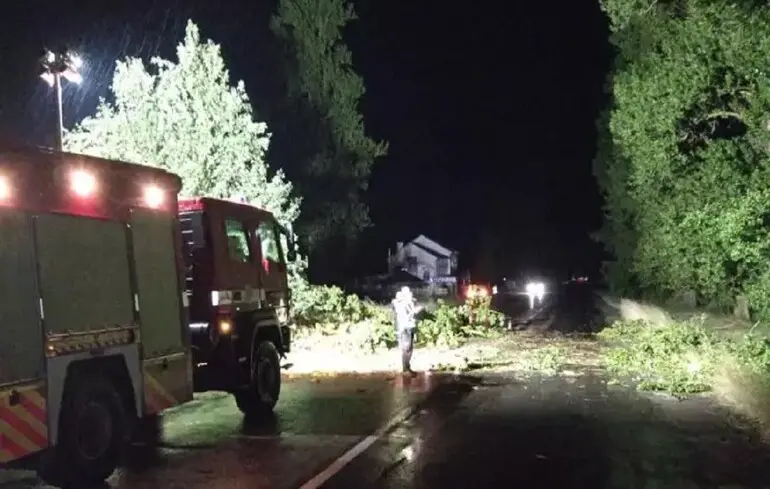Powerful Cyclone in Romania Causes Widespread Disruptions and Infrastructure Damage

On October 4th, many regions across Romania experienced the dire consequences of a destructive cyclone, leading to severe power outages, infrastructure damage, and traffic disruptions.
This natural disaster struck the country following intense storms and snowfalls that began the day before, resulting in significant destruction in numerous cities and areas.
According to Digi24 reports, over 100,000 residents were left without electricity after power lines were toppled, while flooded streets in the seaside city of Constanța complicated transportation.
The most critical situations are observed in mountainous regions, particularly in Bârsov County, where high winds, snow, and ice formations caused hundreds of trees to fall onto electrical lines.
As a result, resorts like Bran, Fundata, and Moieciu lost power, and emergency crews are already working to restore electricity.
Local authorities warn that full recovery might take several days due to difficult access caused by snow cover and fallen trees.
Another problematic area is Constanța, where heavy rains led to extensive flooding: water levels on some streets reached half a meter, causing traffic jams and blocking numerous vehicles.
Ports along the Black Sea coast are closed because of stormy winds.
Additionally, in mountainous zones between Hunedoara, Vâlcea, and Alba counties, four Polish tourists became trapped at an altitude of about two thousand meters amid worsening weather conditions.
Thanks to efforts by Salvamont rescuers and Polish gendarmerie, they were evacuated after a five-hour operation.
Another incident occurred in Sibu County, where a tree fell onto a vehicle near Păltiniș resort, injuring a 29-year-old driver with serious head injuries.
He was rescued by witnesses and urgently hospitalized.
Meteorologists forecast that these adverse weather conditions will persist through the week, with temperatures further dropping and new precipitation events expected.
Some regions might see additional complications.
Meanwhile, neighboring Bulgaria also faced heavy flooding, resulting in casualties and material damage, exemplifying the increasing frequency of extreme weather phenomena worldwide that require prompt and effective responses to minimize their impacts.

